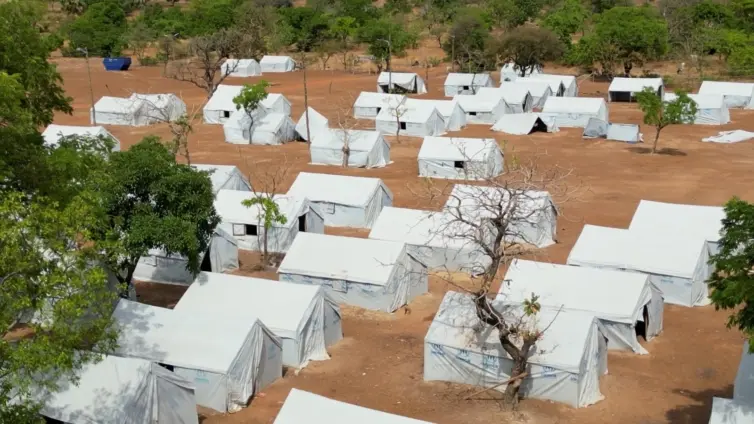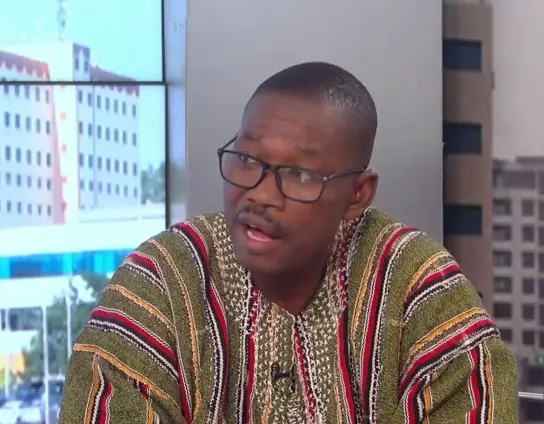The humid air hung heavy over the New Life Nungua Children’s Home, the scent of disinfectant barely masking the underlying odor of too many children in too small a space. Martha, a bright-eyed girl of 10, remembers the chipped paint and the constant struggle for a quiet corner to study. Her story is not unique. It’s a common thread woven through the lives of countless children dependent on Ghana’s privately run shelters, now facing a crippling crisis. These institutions, already stretched thin by limited resources, are struggling to provide even the most basic care, their plight recently brought to light by a Parliamentary Committee tour. The situation underscores the urgent need for increased government child support in Ghana, as these vital havens teeter on the brink of collapse, potentially leaving vulnerable children without essential care and protection.
The current system is reliant on the generosity of individual donors and a trickle of state funding that is often inconsistent, these shelters are facing a crisis, with the very real potential of having to turn children back onto the street. The issues are multi-faceted, requiring holistic reform to ensure the well-being of Ghana’s most vulnerable.
The crisis is impacting children across Ghana, especially those in the greater Accra region, where a large proportion of the shelters are located.
Shelters in Ghana operate on exceedingly thin margins, their survival dependent on a patchwork of individual donations and infrequent state support. For many, this means a constant struggle to make ends meet, a precarious balancing act between providing for the children in their care and keeping the lights on. Paa Kwesi Olenu, a caretaker at one such facility, articulated the frustration: “We really need the government to absorb utility bills because these children aren’t ours, they’re for the state, they’re for everyone.” This sentiment is echoed throughout the shelter system, where dedicated staff often find themselves pleading for basic necessities.
The Department of Social Welfare, responsible for overseeing these shelters, readily admits to lacking the necessary resources for consistent oversight and adequate funding. This creates a vacuum, leaving shelters vulnerable to financial instability and hindering their ability to provide the quality of care that children deserve. Limited resources can have a profound impact on the children who rely on these shelters.
Without adequate resources, children are at risk of being deprived of essential needs such as nutritious food, adequate healthcare, and a stable living environment. The strain on already limited resources also impacts the staff, who struggle to provide individualized attention and support. The cost of utilities, along with the rising cost of food further compounds the problems faced by the shelters. The problems faced by the shelters are many, but the root cause comes down to a lack of financial support.
Adding to the complexity, many shelters are stretched beyond their intended capacity, further diluting the quality of care. Children with special needs, in particular, often suffer, with untrained staff struggling to meet their unique requirements. The most concerning aspect of the crisis is that without immediate aid from the government, there is little hope that the problems can be solved.
The Parliamentary Committee on Gender, Children, and Social Protection recently conducted a tour of various shelters across the country, bearing witness firsthand to the challenges and hardships faced by these institutions. What they observed was a stark reality, a system teetering on the edge of collapse. Members of the committee described the situation as a “system in crisis,” a damning indictment of the current state of child support in Ghana.
Caretakers, often overwhelmed and under-resourced, shared stories of struggling to provide even the most basic necessities, their voices laced with frustration and a deep sense of responsibility. The Committee’s findings painted a clear picture: the existing system is unsustainable and requires urgent intervention.
The findings of the parliamentary committee have led to immediate calls for urgent reforms. Helen Ntoso, Chairperson of the Gender Committee, is leading the charge, urging the ministry to prioritize increased budgetary allocations for shelters during the upcoming review. “We have appealed to the ministry to increase their budget during the review. These institutions are really struggling,” Ntoso stated, emphasizing the critical need for immediate action.
Ntoso insists that the government can no longer afford to turn a blind eye to the plight of these shelters, emphasizing the state’s inherent responsibility to ensure the well-being of vulnerable children. She and others are calling for a fundamental shift in how child support is approached in Ghana.
Ntoso stated that, “If the state is placing children with disabilities in private shelters, then we must equip them to deliver the care these children deserve.” Her comments highlight the urgent need to equip private shelters so that they can properly care for children with disabilities. The lawmakers have criticised the current model as unsustainable, as the state needs to do more to protect the children in its care.
Despite the mounting evidence of a system in crisis and the urgent calls for reform from the Parliamentary Committee, concrete action remains elusive. Children like Martha continue to live in precarious circumstances, their futures uncertain as they navigate overstretched shelters, unsafe homes, or even the streets. The gap between words and action is a stark reminder of the challenges faced by vulnerable children in Ghana.
Without meaningful help arriving soon, the situation is unlikely to improve. The children are unable to receive the care that they need, with the prospects of a better future fading. There needs to be more advocacy for increased government funding to support the children, by developing sustainable funding models, establishing oversight mechanisms, strengthening shelter staff, and raising public awareness.
The problems need to be addressed soon, but for children like Martha, every day is a challenge, with no end in sight.
The crisis at shelters in Ghana demands immediate attention and increased government child support. The voices of caretakers, the findings of the Parliamentary Committee, and the plight of children like Martha all underscore the urgent need for decisive action. Without it, vulnerable children will continue to suffer, their futures jeopardized by a system that fails to prioritize their well-being. It is imperative that the government translates words into action, prioritizing the needs of its most vulnerable citizens by increasing funding, improving oversight, and implementing sustainable solutions that ensure every child has the opportunity to thrive.
Image Source: MYJOYONLINE






















